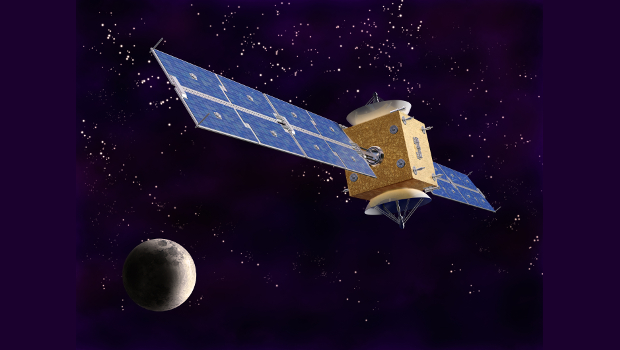
Minister Halligan unveils national space economy plan
Minister of State for Training, Skills, Innovation, Research & Development, John Halligan launched Ireland’s National Space Strategy for Enterprise 2019-2025 at the DCU Alpha campus in Glasnevin, Dublin, today.
The strategy will support Ireland’s expanding space-active industry and research institutes, which work across a range of technological domains and develop technology with both space and non-space applications.
Minister Halligan said: “Space-active Irish companies have become increasingly successful within European Space Agency and EU programmes in recent years. As the space economy continues to evolve at an unprecedented rate, there is a growing opportunity for Irish companies to participate. This strategy puts into place a framework for a greater Irish involvement, and enhanced success at a global level.”
According to the European Investment Bank (2019), the international space sector has grown by an average of 6.7% per annum between 2005 and 2017, almost twice the 3.5 % average yearly growth of the global economy.
In parallel, the capabilities of space-active enterprises in Ireland have progressed significantly in recent years, with the number of companies engaged in contract work with the European Space Agency (ESA) having grown from 35 in 2008 to 67 in 2018. The development of Ireland’s space-active industry is supported by Ireland’s membership to international organisations including the ESA, the European Union space programmes and EUMETSAT.
“The national space strategy also significantly supports the aims of the Future Jobs Ireland framework, embracing innovation and technological change and supporting the development of quality jobs that will be resilient into the future,” said the Minister.
“The skills and capabilities necessary to develop space technology are often transferable between the space sector and other high value sectors such as automotive, environmental protection, agriculture, maritime and human medicine. Irish enterprise is already competitive across a range of technological domains related to these sectors, including software development, manufacturing, photonics, engineering, nano-materials, data analytics and communications technologies, and is ideally placed to seize the new opportunities within the evolving space market and moreover, to transfer their skills and technology between the space and non-space markets.”
The strategy sets out six goals to achieve by 2025:
- Double the space related revenue and employment in space-active Irish companies
- Support 100 companies to benefit from ESA engagement
- Double the value of contracts won through the EU Horizon programmes in space-related activities
- Increase industry, public and international awareness of space and Ireland’s activities in space
- Develop and attracting talent for space-active and related industries
- Develop a sustainable Earth Observation services sector based on advanced data analytics capability
The delivery of these goals is underpinned by a target to increase Ireland’s overall public and private investment through ESA by 50% to an annual level of €32 million by 2025.
Tom Kelly, divisional manager innovation & competitiveness at Enterprise Ireland, said: “Last year, 27 companies in Ireland secured European Space Agency contracts valued at €19.3 million. Irish companies are at the leading edge of innovation and technological developments within the Space sector in a range of technology areas including development of the next-generation satellites and spacecraft, technologies for human spaceflight, as well as technologies to optimise the use of Earth observation, telecommunications and navigations satellites.”
Commenting on the strategy, Prof Orla Feely, University College Dublin (UCD) vice-president for research, innovation & impact, said: “The emergence of Space 4.0 will create a wealth of opportunities for Irish enterprises to build on our research base and create new opportunities for business and our graduates. However, in order to take full advantage of these opportunities, greater research investment is necessary to enable the growth of the space industry and increase economic return for the country.”
TechCentral Reporters






Subscribers 0
Fans 0
Followers 0
Followers